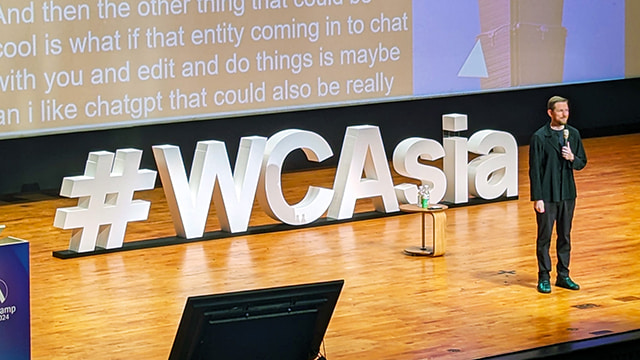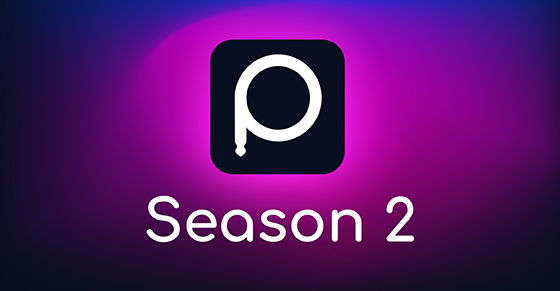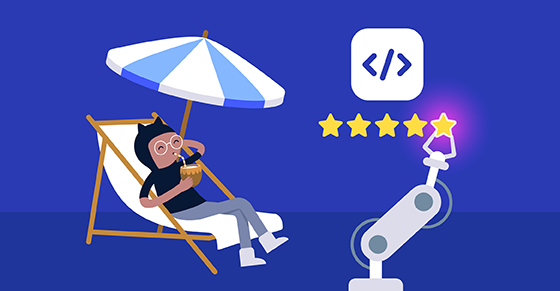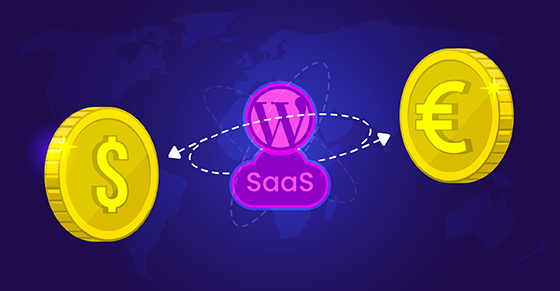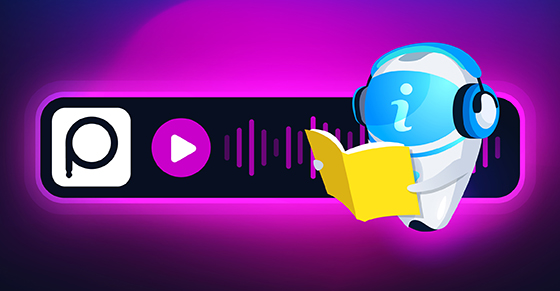End-user license agreements (EULAs) ensure that the rights and responsibilities of software creators and users are clearly defined and protected. Crafting this legally binding document is, however, not as cut and dry. Read on for EULA examples and use cases that prove this 😉
In a previous article, we demystified EULAs for software products, exploring their key, high-level clauses and outlining the initial steps for drafting. What we didn’t unpack is the nuance, ambiguity, and gray areas of real-world use cases and how they influence existing EULA clauses and sub-clauses.
These real-world EULA examples cannot be ignored. As a business grows, more scenarios will surface. And, if makers are to continue protecting themselves as operations scale, their EULAs need to account for them.
Here are several EULA examples — along with specific use cases — that Freemius founder and CEO, Vova Feldman, and our makers community have observed over the years.
These prove that EULAs are anything but ‘one size fits all’…
Disclaimer: This article is not legal advice. If you’re facing a situation where the details really matter, it’s best to chat with a legal expert. Please don’t rely on this article as the final word on the law.
EULA Examples and Their Use Cases
First up:
Lifetime Licenses
There’s not a single software solopreneur in the world who wants to offer lifetime support with lifetime licenses.
What if (a) you move on from the product or (b) you sunset the product?
- It’s not uncommon for users to reach out for support once a maker has stopped developing the product. Would you want to offer support (potentially) years down the line? Probably not…
- Developers choose to sunset products for a multitude of reasons. Regardless, you can’t expect there to be zero support requests if your product suddenly disappears from end users’ working websites and causes disruptions.
Here’s an excerpt from the EULA we generated for our amazing makers Code Snippets to protect them against the above examples:
(ii) no undertaking is made by the Vendor that it will support or maintain the Product (for example, if the Vendor ceases to do business or retires the Product), even if You have purchased a Lifetime License.
Discounts
Offering discounts is par for the course in selling software products.
But, in the case of sales extravaganzas like Black Friday Cyber Monday — where products are heavily discounted — it’s an administrative hassle to offer money-back guarantees. A good chunk of BFCM bargain hunters are buying products as a means to an end rather than a long-term solution, so expect a rise in requests for full refunds on heavily discounted prices.
To avoid this and similar, software creators better include sub-clauses that clarify at which discount tiers money-back guarantees are in play, and in which tiers they’re off the field (e.g. 40% discounts). You could even be specific and state that no refunds will be granted for sales over the BFCM period.
While we’re on the subject of refunds…
‘No Questions Asked’ Money-Back Guarantees
Vova shares an example:
‘Let’s say you offer a ‘no questions asked’ money-back guarantee. One of your customers is a freelancer who builds websites and has been using your product for some time. They like it enough to purchase another license for an upcoming client project.
The freelancer decides to bail out in the middle of the project after already installing and activating the license on the client’s site and asks for a refund for the second license. This is clearly unfair to the developer — why should a maker bear those costs? The customer knows how the product works and likes/trusts it enough to purchase it for their projects.’
The main purpose of a ‘no questions asked’ money-back guarantee is to reassure potential customers they’ll be refunded in full if the product is not a good fit.
It’s not for instances where clients ditch, projects fall through, or similar. Here’s an example of how to ensure you’re not out of pocket in such scenarios:
…the following do not constitute a Purchase that would entitle you to another refund right:
- upgrading an existing Purchase – whether you are upgrading within the same plan (for example, purchasing additional license activations), upgrading from one plan to another plan (for example, from a ‘Starter’ account to a ‘Professional’ account), or upgrading to a different billing cycle (for example, from ‘monthly’ to ‘annual’); or
- purchasing a new additional license under a plan. ⏪
Bear in mind that payment processors like Stripe and PayPal no longer refund their fees on payment refunds. Therefore, even if the software isn’t in use, the refund comes with a cost to the software company (~4% of the transaction amount). More on that down below.
Software Product Bundles
Bundles are multiple products sold under one price. Some points to ponder:
- Do you define an end-user license agreement per product or do you have one ‘catch-all’ EULA for each bundle?
- If a single bundled product breaks or causes issues, will you refund the end-user for that product or will you refund them for the entire bundle?
Bundles are heavily discounted already, so it doesn’t make sense for sellers to refund specific products in bundles. This can be an administrative and financial drain that’s compounded by the fact the end-user is already getting a good deal from the get-go.

Thus, product bundle refund policies — which Freemius and our makers do not typically offer — better be created separately as ‘Bundled Offering Terms’ that specify how you’ll treat refunds and such.
…if You are purchasing a bundled offering of more than one Product (a “Bundled Offering”), then the Purchase plan terms and refund policy that specifically govern that Bundled Offering as a whole (the “Bundled Offering Terms”) shall apply instead of the above-mentioned Vendor Refund Policy, as well as to the extent of any other conflict or inconsistency with a provision of this Agreement.
Free Trials
An end-user typically has to input credit card details to begin a trial. If they don’t cancel before the trial ends, they’ll be charged.
Your EULA needs to highlight that the buyer acknowledges they are solely responsible for taking action before the trial expires. As a courtesy, it’s good practice for sellers to send a reminder email(s) a few days before the trial’s end to remind them.
The issue is that there’s no guarantee the trial expiry email — or any email, for that matter — will arrive in the end user’s primary inbox. It could be shunted into spam. A trigger on the side of the email service provider could misfire and result in non-delivery.
Of course, there needs to be flexibility in such cases, but software sellers still need to include clauses to protect themselves from having to refund every case where an email reminder fails deliverability:
- If you subscribe for a trial with a payment method, Freemius will attempt to send you an email reminder two (2) days before the trial expiration, giving you enough time to cancel the trial. Such a reminder would only be a courtesy, and, depending on your email client, it could potentially end up in your spam inbox, so do not rely on that email – you alone are responsible for taking any action before the trial expires.
- If you subscribe for a trial without a payment method, Freemius will attempt to send you an email reminder two (2) days before the trial expiration, giving you the option to purchase a plan. As with the trial with a payment method, such a reminder would only be a courtesy, and, depending on your email client, it can end up in your spam inbox.
But there’s more to this story, and trial refund requests — in particular — can be exacerbated by the fact that:
Many Payment Processors Don’t Refund Gateway Fees
An example to illustrate how trial refunds and gateway fees can leave software creators running at a loss:
- A software product costs $1000 and comes with a free seven-day trial. The trial converts and the buyer is charged the full $1000.
- The buyer requests a refund because they didn’t cancel the subscription, claiming they did not receive a reminder to do so.
- Although — if truth be told — they probably just forgot 🤷
- Enter the payment gateway. In this case, let’s use Stripe with their regular fee of 3.5% per transaction, which was charged when the trial ended.
- If the payment is refunded, Stripe keeps the gateway fees and the seller is effectively out of pocket for $35 (not to mention having to refund revenue they assumed was guaranteed).
Look, not every case is clear-cut. Plus, as a seller, you want to be flexible and create a good user experience to avoid situations that could escalate.

In the buyer’s defense, a thousand dollars is a lot of cash to lose unexpectedly. They won’t be happy about it (see: potential escalation 👆). Even if you do refund cases like this, it’s still unfair that you lose out on $35 because an email wasn’t delivered/the person forgot to cancel.
Vova’s advice is to take a conciliatory approach:
For refunds related to free trials of products with high price points, you can meet buyers halfway and stipulate in your EULA that a partial refund will be provided, minus the gateway fees.
License Restrictions
Sellers need to clarify if product licenses can be resold. In most cases, it will be a resounding ‘no’ as reselling can create a second market that you’ve no control over, lead to profiteering, and bring about support hassles. Plus:
- Should it be your responsibility to offer support to someone who purchased a resold license without agreeing to your end-user license agreement?
- Should a reseller make more than you from the product that you slaved over?
Vova expands on the second point:
Theoretically, someone could purchase an unlimited multisite license for, say, $100 and resell that license for $5, rinse and repeat. If they have a skill for marketing, there’s a chance they could even make more money than you from your product.
While a reseller making more cash than you is unlikely, an increase in support load from people who purchase resold licenses isn’t. Here’s how we ensure our makers have measures in place to safeguard themselves:
…You shall not do (or permit or encourage to be done) any of the following, in whole or in part: (a) copy, “frame” or “mirror” the Product, on any other server or wireless or Internet-based device; (b) sell, assign, transfer, lease, rent, sublicense, distribute, publicly perform, display or communicate, offer as part of a time-sharing, outsourcing or service bureau environment, or otherwise make available, the Product to any third party, or bundle or incorporate the Product into or with any other product or service.
Up until now, we’ve focused on individual buyers to illustrate various use cases, but software creators also service larger entities like agencies.
License Restrictions in the Agency Ecosystem
For software web products, like WordPress plugins and themes, an agency typically purchases a multisite license to install and use the product on multiple client websites. Great for business; not so much for support load if there are no EULA clauses in place to protect you…
Let’s say an agency installs your product on 100x websites. The potential for a big uptick in support load increases.
Why? Because there’s a high probability that most of the agency’s clients will be unfamiliar with a product that comes pre-installed on their websites. They’ll need help, especially if the agency is only responsible for building the project without maintenance services.
Since there’s no way a solopreneur or software developer with a small business can take on such a huge increase in support load, it needs to be spelled out that if the agency’s clients have a problem, they need to seek support from the agency.
Even so, it’s still a good practice to commit to offering support to the agency since they (or a freelancer on their behalf) initiated the transaction and agreed to the product’s EULA.
If a third-party service provider (such as an agency) is entering into this Agreement on Your behalf to operate the Product on Your behalf, the License (and any related services, such as support and maintenance) also extends to such service provider.
Price Changes
Fluctuation is guaranteed and software creators must set EULA conditions for what happens when they implement product price changes. Let’s examine two use cases:
Use case one: Someone purchases your product a day before Black Friday Cyber Monday because they were living under a rock and unaware of the sales extravaganza.

The next day, they discover the product’s price has fallen by 50%. They are understandably irritated, contact you, and ask for a 50% refund.
What’s your decision?
Much of business is about instilling trust and loyalty in your user base. In this scenario, it makes sense to give the user the benefit of the doubt by offering them the product at BFCM prices. It was only a day, and being gracious/understanding can lead to brand advocacy.
Use case two: A $100 subscription was purchased five years ago. Flash forward, and the product price is now $200. For whatever reason, the credit card used to renew the subscription is canceled and the subscription ends, even though the customer is still using the product.
Should the user have to pay an additional $100 because they forgot to update billing details or should the seller forgo the additional sum because they’ve been a loyal customer for five years?
Whatever your answer to the above use cases, it’s these types of billing-related situations that need to be addressed in your EULA, regardless of whether you’re willing to be flexible in certain cases or not.
As our final point, we’re taking things onto the global stage 🌍
Legal Nuances for Globally Sold Products and Their EULAs
It’s unrealistic for software creators who sell globally (or their lawyers) to grasp all of the legal nuances associated with EULAs in different countries.
With that said — the more you know about a country or region’s specific legalities, the better you can protect yourself when drafting EULAs. And, luckily, certain clauses act as workarounds for cases where an EULA stipulation contradicts or clashes with local laws and regulations.
It is, however, incumbent on the product seller (or their lawyer) to investigate.
An example: Europe’s ‘right of withdrawal’ or ‘cooling-off period’ rule states that a buyer can return a product intact and in its original packaging for a full refund within 14 days of purchase. If the package was opened, the cooling-off period doesn’t apply.
If there is no rule to counteract the above, European buyers could theoretically contact the seller for full refunds and threaten to sue if none are forthcoming.
This excerpt covers the above:
If You change Your mind about your Purchase and have not yet downloaded the paid Product, then, upon Your request within fourteen (14) days from the Purchase date, we will issue a full refund of the Purchase price.
Refund requests made after downloading the Product (but before the expiry of 14 days from the Purchase date) are handled on a case-by-case basis and are issued at our sole discretion.
Why else are these clauses so important? Vova expands:
In theory, if these and similar clauses aren’t written into your EULA, the agreement or contract can be invalidated if an end-user or legal entity decides to sue the software provider.
Our advice is to research and understand the bigger markets and their fundamentals — such as the EU and GDPR, etc. — but to place your primary focus on adhering to the US market’s laws and regulations.
From High-Level to Granular: Freemius Can Help Draft Your Watertight EULA
If you thought that EULAs were surface-level affairs that could be cobbled together from other existing documents, we hope this and our previous article have given you pause for thought 😅
EULAs are ‘works in progress’, built from the ground up and improved through research and firsthand use-case experiences. But even with this fundamental understanding, knowing how and where to apply it can still be difficult.
This is why we generate EULAs for our makers based on their specific product configurations, such as refund policies, plan settings, free trials, lifetime licenses, subscriptions, etc. And, as more use cases are surfaced and market changes come into effect, our team is also on hand to help and advise.
If you’d like to chat about drafting an initial EULA or pick our brains about more use cases (not to mention explore how we maximize our makers’ revenue streams), reach out here or drop us a DM on X.



